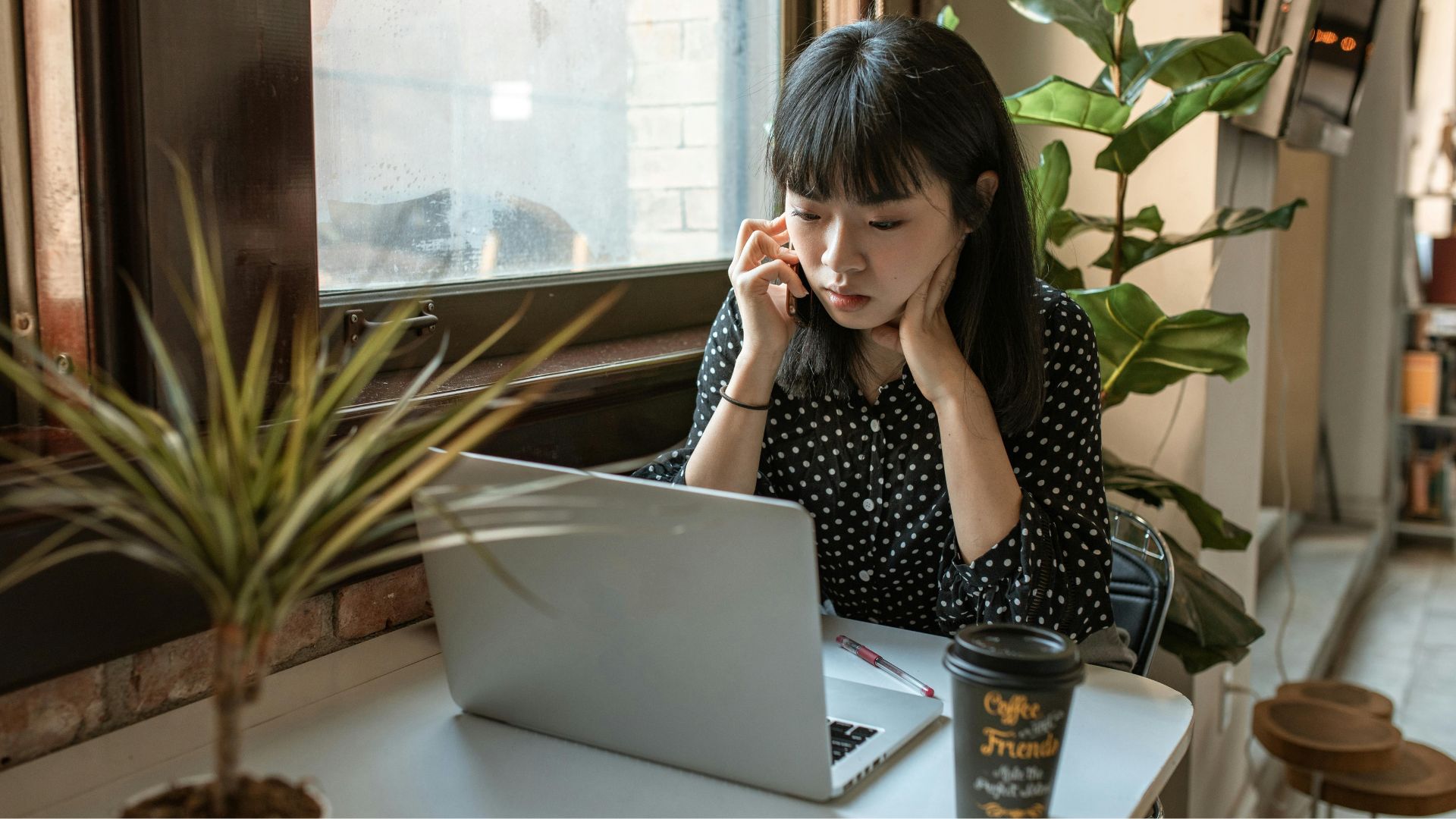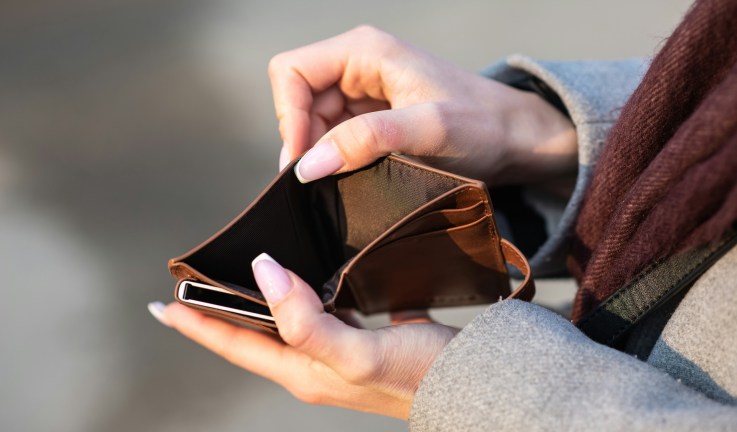For any woman who is more marginalised, for example women of colour, LGBTQ+ women, or disabled women, this gap is likely to be wider.
An ONS survey in 2023 found the disability pay gap for women was 9.6%. For women of colour, government figures found in 2024 that ethnic minorities had a 14.8% median pay gap, though the report did not separate this gap by gender. For LGBTQ+ employees, a 2024 report found the pay gap was 16%.
Research has found the gender pay gap is caused by numerous factors, from discrimination, to many women taking time off work for caring responsibilities, to more women being in part-time work. This directly translates to lower earning potential, with a study by the Living Wage Foundation in March 2025 finding nearly three million women in the UK are paid below the real Living Wage.
The Living Wage Foundation found this gap in earnings had a real impact on women who are on lower wages, with a third (32%) of women on low pay skipping meals regularly for financial reasons, and 69% of women on low pay saying their mental health was negatively impacted.
What specific financial challenges do women face?
On top of the gender pay gap, there are numerous financial challenges women and marginalised genders can face during their lives – from pension inequalities due to lower earnings throughout working life, to caring responsibilities (according to the UN, women take on 11 more hours of unpaid care a week than men), to potential maternity inequalities.
Rutendo Ngwena, shifting power and learning manager at women’s financial charity The Smallwood Trust, told the Big Issue: “Women face structural barriers to financial security throughout their lives, which accumulate and intensify over time.
Advertising helps fund Big Issue’s mission to end poverty
“Caring responsibilities are a major factor. Women are far more likely than men to provide unpaid care for children, elderly relatives, disabled family members and other dependants. This vital but often invisible work restricts women’s access to the labour market and limits their ability to secure stable, full-time employment.”
She added that single mothers in particular “face significant barriers to full-time work”.
“The lack of affordable and accessible childcare, combined with the rising cost of living in a single-income household, contributes to persistently high poverty rates among this group. Women who are disabled, racially minoritised, living in large families, or survivors of domestic abuse also face heightened risk, experiencing multiple and compounding forms of disadvantage,” she said.
Ngwena added that women’s poverty is often hidden, as women act as “shock absorbers” of poverty, often cutting back on essentials themselves first – such as food, heating and clothing – to “shield their children and family members”.
These issues of inequality are also more likely to translate into poverty in older age, with Independent Age finding 20% of women aged 65 and over are living in poverty, compared to 16% of men.
According to the Money & Pensions Service, the gender pension gap in the UK averages £136,000; Women retire with £69,000 in pension savings on average, compared to £205,000 for men. This is down to numerous reasons, from taking time out of the workforce due to caring responsibilities, to more women being in part-time work, to divorce straining financial security – the Legal & General Group found an average women’s income decreases by 33% post-divorce compared to 18% for men.
Advertising helps fund Big Issue’s mission to end poverty
Gina Miller, founder of women’s financial organisation MoneyShe, urged women who take time off for caring duties or illness to “get your partner to pay your monthly [pension] enrolment, because all of a sudden, later on when you’re getting up to your pension, you’ve got this pension gap”.
“There’s also a misconception that it’s too late. I speak to lots of women who will come in and say, ‘I’m turning 50 soon, I haven’t got enough time to save my pension.’ But you don’t have to automatically stop when you retire. You can carry on paying into it afterwards,” she explained.
Miller said it’s “not too late, and it’s not too early” for women to save for retirement, adding: “Don’t be a statistic. You’re more likely to live on your own. You’re more likely to live in pension poverty. You’re more likely to [lose income] in divorce. I know it sounds depressing, but you should plan for reality.”
She added that it’s crucial for women to “have something in their own name”, whether it’s a bank account or investment, in order to protect themselves in the event of a divorce or economic abuse.
Are there any grants available for women?
Depending on your circumstances, there may be hardship grants or funds available that could help alleviate the cost of living.
You may be eligible for the Sure Start Maternity Grant, which is a one-off £500 payment to help with the costs of having a child, if you’re already receiving certain benefits like universal credit or jobseeker’s allowance.
Advertising helps fund Big Issue’s mission to end poverty
You could also access grants for unpaid carers depending on your circumstances, with Carers Trust offering information on funds you may be eligible for.
For grants available to all genders, Shelter and Turn2us have listed useful resources that may help you to access emergency funds.
What can women do to close the gender pay gap and take control of their finances?
There are a number of steps women can take in order to protect themselves financially, from making sure they’re receiving all of the benefits they’re entitled to, to learning about investing.
In terms of creating a budget and maximising your income in the short term, Gina Miller advised women to “sit down and have a plan, just good old fashioned pen and paper, and look at what’s coming in, what’s going out”.
“Think about a six-month cushion for what’s going in and what’s going out, and then think, ‘What can I put away? £50 pounds a month? Can I start with a lump sum and then build on that?’
“Understanding what’s coming in and where you’re spending it sounds really basic, but it begins to get you to understand what’s happening with your money.”
Advertising helps fund Big Issue’s mission to end poverty
She added there are around 850,000 pensioners who can access pension credit, but don’t claim it, and there are “so many benefits that go unclaimed, especially by women”.
In the longer term, Miller highlighted the importance of savings and investment, with MoneyShe finding that many women aren’t necessarily taking advantage of financial products that could help grow their money; its research found almost half (44%) of women do not have an ISA, and among those who do, 61% use low-growth cash ISAs rather than stocks and shares ISAs.
This meant, according to MoneyShe, for every £1 a woman saves, a man saves £3.
Gina Miller explained that taking advantage of higher-growth products like stocks and shares ISAs, as well as encouraging women to become more financially confident, could be a way for women to take control of their finances.
“Over the past 10 years, the average return on stocks and shares ISAs has been 9.6% annually, compared to just 1.2% for cash ISAs. Unless we take urgent action, women will continue to be left behind in financial planning, increasing the likelihood of pension poverty,” Miller explained, adding there is a “confidence barrier” when it comes to making investment decisions.
Miller explained that one of the best things women can do in order to financially empower themselves is to talk about money and learn about your financial options.
Advertising helps fund Big Issue’s mission to end poverty
“Don’t be a good girl and not talk about money,” she said. “Independent, feisty women talk about money, talk about investing, it’s good to be financially free and independent. It’s in your hands to choose the life you want to lead.
“You have every right to access the benefits of stocks and shares and investing as anyone else.”
Despite the steps women can take to improve their financial resilience, experts say real and lasting change towards financial gender equality “requires systemic reform”.
“Women’s financial challenges are rooted in structural factors such as caring responsibilities, labour market discrimination, racial injustice, insecure housing and an inadequate social security system,” The Smallwood Trust’s Rutendo Ngwena explained.
“While it is important to support women to strengthen their financial resilience, it is equally important to recognise that no amount of personal effort can fully overcome systemic barriers without wider societal change,” she said.
Ngwena added that in this broader context of structural inequality, there are steps women can take individually to support their financial security, including “seeking specialist advice early” if they need support on financial issues such as the benefits system, debt or housing issues. She said that women can engage with organisations or charities for support – such as the Women’s Budget Group, Surviving Economic Abuse, Agenda Alliance, the Fawcett Society or the Women’s Resource Centre.
Advertising helps fund Big Issue’s mission to end poverty
Advocating for themselves “where it feels safe and appropriate” can also strengthen their financial circumstances.
“Women can advocate for their rights in the workplace, in healthcare settings, with education providers, or within the welfare system. This might involve requesting flexible working arrangements, challenging unfair benefit decisions, seeking reasonable adjustments for health conditions, or advocating for their children’s needs in education or social care systems,” she said.
“However, women should not bear the burden of overcoming structural inequalities alone. Real and lasting change requires systemic reform, investment in women-led solutions, and collective action to dismantle the barriers that keep women in poverty.”
Do you have a story to tell or opinions to share about this? Get in touch and tell us more. Big Issue exists to give homeless and marginalised people the opportunity to earn an income. To support our work buy a copy of the magazine or get the app from the App Store or Google Play.






